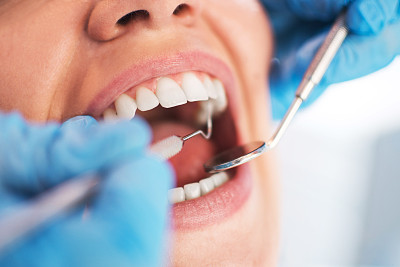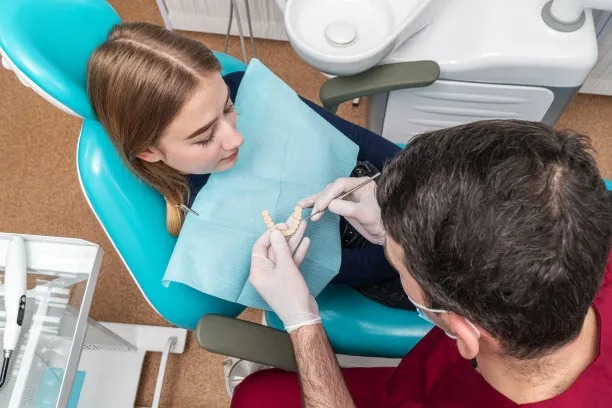Summary: Dental filling procedures are crucial for restoring damaged teeth and preventing further oral issues. However, proper care before and after the procedure is essential for ensuring optimal recovery and long-term health. This article delves into four critical precautions: preparing for the appointment, selecting the right foods, maintaining proper oral hygiene, and recognizing signs of complications. Each aspect plays a significant role in enhancing your recovery experience and safeguarding your dental health. By adhering to these guidelines, you can ensure a smooth process and maintain the benefits of your dental filling.
1. Preparing for Your Dental Appointment

Preparation is key when scheduling a dental filling. Begin by consulting with your dentist about the procedure and any medications you might be taking. Disclose any allergies or previous reactions to dental treatments to ensure your safety and optimize your experience.
Additionally, consider arranging transportation for the day of the procedure. Depending on the anesthesia used, you may feel drowsy or unsteady afterward. Having someone to drive you home can prevent unnecessary risks and ensure your comfort.
Lastly, its beneficial to create a checklist for the day of your appointment. Include items such as your dental insurance card, a list of medications, and any necessary forms. Being organized can alleviate stress and enable you to focus on your dental health.
2. Choosing the Right Foods After the Filling
The type of food you consume after a dental filling is paramount for your recovery. Initially, stick to soft foods that require minimal chewing, such as yogurt, smoothies, or applesauce. This approach minimizes discomfort and prevents damage to the new filling.
Avoid hot or cold foods and beverages in the first 24 hours post-treatment. Extreme temperatures can trigger sensitivity in the filled tooth, making your recovery uncomfortable. Instead, consume foods at room temperature to aid in a smoother healing process.
After the first day, gradually reintroduce solid foods, but remain cautious of hard or sticky items. Foods like nuts, chewy candies, and hard crusty bread can dislodge or damage the filling. Consulting your dentist about dietary restrictions can provide personalized guidance.
3. Maintaining Excellent Oral Hygiene Practices
Oral hygiene is critical for the success of your dental filling. Ten to twelve hours after the procedure, you can resume your regular brushing routine, but opt for a soft-bristled toothbrush. This gentler approach protects the treated area while still preventing plaque buildup.
Flossing is equally important, but wait at least 24 hours before doing so. Once the initial healing period is over, incorporate flossing back into your daily routine, being careful around the filled tooth to avoid any damage.
Additionally, consider using an antibacterial mouthwash to help reduce bacteria in your mouth. This supplement can assist in the healing process and prevent potential infections. Remember to consult your dentist about appropriate products, particularly if you have specific allergies or sensitivities.
4. Recognizing Complications Early On
A vital precaution post-procedure is the ability to recognize signs of complications. Common symptoms include persistent pain, swelling, or increased sensitivity. If you experience these, consult your dentist immediately, as they might indicate an issue with the filling or underlying tooth structure.
Bleeding around the filled area is another potential concern. While slight bleeding can be normal immediately after the filling, prolonged or excessive bleeding should prompt a visit to your dental professional.
Keep track of your recovery process and document any unusual sensations. Having this information ready can assist your dentist in accurately diagnosing and addressing any concerns that arise during your healing journey.
Summary:
Overall, the importance of following essential precautions before and after your dental filling cannot be overstated. By preparing adequately, choosing the right foods, maintaining excellent oral hygiene, and being vigilant about potential complications, you can ensure a successful procedure and promote optimal recovery.
This article is compiled by Vickong Dental and the content is for reference only.
Vickong Dental
Vickong Dental is a large medical group established in Hong Kong in 2008 by professors from well-known medical universities in Guangdong and Hong Kong, as well as medical doctors from key national '985' universities (including Master's supervisors and senior professors). The chain of branches brings together expert dentists with PhDs and Master's degrees from Hong Kong and Mainland China, committed to providing high-quality dental treatment.
"Vickong Dental Practices the University Motto of 'Healing and Serving Society,' with a Stable Operation for Sixteen Years. It Has Been honored with Hong Kong Enterprise Leaders's Choice,' and is a Global Trusted Implant Center for the Nobel Implant System. Recommended by Hong Kong Metro Broadcast and Guangdong Television, it Serves Customers from Over Thirty Countries and Regions, Gaining the Trust and Favor of Citizens from the Guangdong-Hong Kong-Macau Greater Bay Area and Surrounding Cities.

Thousands of customers' unanimous praise
The most recognized and highly recommended dental service by customers in the Guangdong-Hong Kong-Macau Greater Bay Area
We Ensure You Receive Detailed Care and Attention Here
Hong Kong standards, Shenzhen prices, Your Trusted English-speaking dentists

Vickong Dental Medical-Grade Instrument Disinfection Process
Vickong Dental Medical-Grade Instrument Disinfection Process

Vickong Dental Chain: A Warm and Comfortable Environment for Treatment






Appointment Hours

Q&A
Why choose Vickong Dental?
Vickong Dental practices the university motto 「Medicine to Benefit Society」, with each branch bringing together highly qualified dentists with doctoral and master’s degrees from Hong Kong and the Mainland, and has maintained seventeen years of steady operation。Recipient of 「2024 Hong Kong Enterprise Leaders Brand」, 「2025 Hong Kong Enterprise Leaders Brand」, a Nobel Biocare Global Trusted Implant Center, and a brand recommended by Metro Radio Hong Kong and Guangdong TV。
To date, we have served customers from more than thirty countries and regions,earning exceptionally high word-of-mouth recognition and trusted recommendations from residents across the Guangdong-Hong Kong-Macao Greater Bay Area and surrounding cities
We have eight major branches in Zhuhai、Shenzhen,and a consultation and service assurance center in Hong Kong,so you can book a free consultation at any time for any questions,which is very reassuring.
If I do not accept the quotation after the CT scan, will I be charged??
No! As long as the actual treatment has not started, you will not be charged any fees.
Will there be any additional charges during the treatment process?
No, there won’t be any additional charges. Before treatment begins, we will clearly explain the treatment plan and its corresponding fees. Only after the patient agrees and signs the consent form will we proceed with the dental service.
Can I pay in Hong Kong dollars?
Yes. Vickong Dental accepts payment in Hong Kong dollars. The amount will be converted based on the exchange rate of the day, and the applicable rate will be clearly communicated to you in advance.
Can I reschedule my appointment at any time?
Yes. Please contact us via **WeChat** or **WhatsApp** as early as possible, providing your original appointment time and details, along with your preferred new date and time slot for rescheduling.













